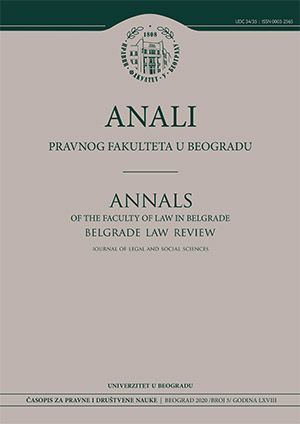НЕОПРАВДАНА НАДА: РОБНА РАЗМЕНА ЈУГОСЛАВИЈЕ И УВЕЋАНОГ ТРЕЋЕГ РАЈХА 1938–1939. ГОДИНЕ
UNWARRANTED HOPE: TRADE BETWEEN YUGOSLAVIA AND THE EXPANDED THIRD REICH 1938–1939
Author(s): Saša IlićSubject(s): Economy, Law, Constitution, Jurisprudence, Human Resources in Economy
Published by: Правни факултет Универзитета у Београду
Keywords: Yugoslavia; Germany; Anschluss; Foreign trade; Southeast Europe;
Summary/Abstract: During the 1930s Germany became the most important economic partners of Yugoslavia and other countries of Central and Southeastern Europe. Economic domination led to the spread of political influences. Yugoslavia, as an exporter of food and raw materials and an importer of finished products, did not enter the German orbit unreservedly, but over time its capacity for independent action weakened. After Germany’s announced territorial expansion, the pragmatic Yugoslav political leadership hoped that this would boost economic cooperation. However, the annexation of Austria, the Sudetenland and the CzechMoravian Protectorate to Germany (1938–1939) did not lead to an increase in trade with Yugoslavia. Just the opposite, the trade declined due to German appropriation of the economic resources of the annexed countries, the general decline of German exports, the decline in Yugoslav exports (especially corn, whose surpluses were consumed), recession, and Yugoslavia’s latest attempt to increase trade with Western countries, especially Britain.
Journal: Анали Правног факултета у Београду
- Issue Year: 68/2020
- Issue No: 3
- Page Range: 111-138
- Page Count: 28
- Language: Serbian

